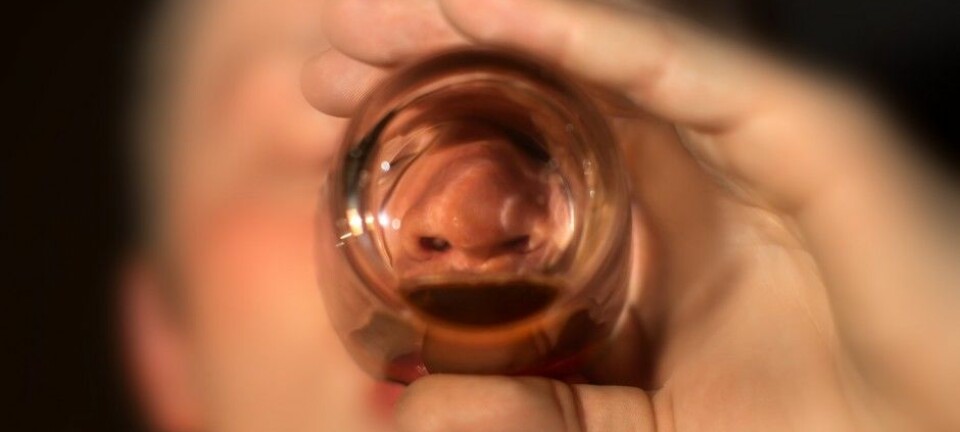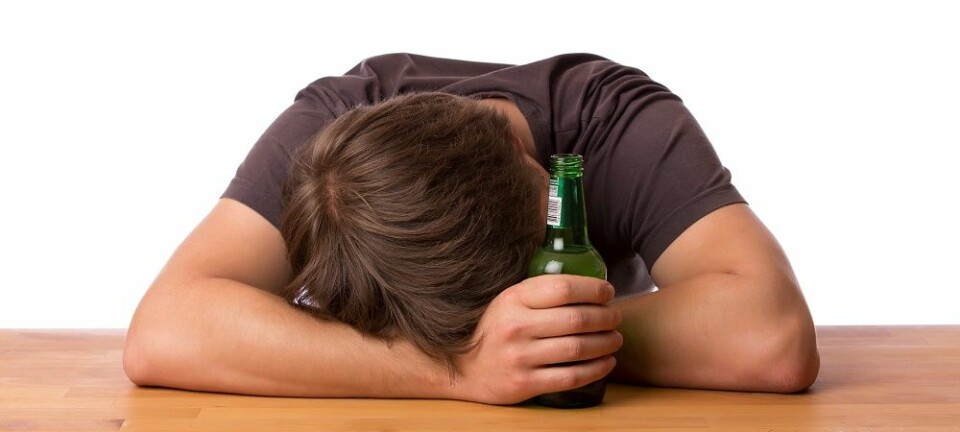
Teens who drink with their parents run higher risks of binge drinking
Several studies indicate that underage drinking of alcohol sensibly with parents can reduce the risk of heavy and harmful consumption. But these results do not give a complete picture, conclude Norwegian researchers in a new study.
Norwegian health authorities advise against adults giving alcohol to minors under the legal age of 18.
However, some research studies have linked underage teenagers being allowed to try a little alcohol with their parents with a lowered risk of the youngsters developing harmful alcohol consumption patterns.
So what is right? According to drug and alcohol researchers Hilde Elisabeth Pape and Elin Bye at the Norwegian Institute of Public Health, a problem with some of the research to date, is that some of the questions posed have failed to clarify and distinguish between different kinds of drinking with parents.
“It turned out that the harm-reducing effects of drinking a little with parents were found in a study where youngsters were asked: ‘Was the latest drinking episode together with your parents?’ But this does not catch how frequently such drinking episodes occur,” says Pape to ScienceNordic’s Norwegian partner, forskning.no.
In her work, published in Nordic Studies on Alcohol and drugs, other questions were asked and the responses gave more detailed information.
“How many times in the past 12 months have you been drinking with your parents?”
In the new study by Pape and Bye, 15- and 16-year-olds were asked: “How many times in the past 12 months have you been drinking with your parents (one or both)?” They were also asked “Did you drink with your parents (one or both) the last time you drank alcohol?”
With the first question they wished to find out what effect drinking with parents, when it is more of a common pattern than the exception, can have on teenage drinking habits. They also wished to complete more of the total picture than previous studies have done.
“We could find out whether there is an association with an increased or decreased risk of adolescent drinking differed by asking both questions in the same study.”
Pape says the results were striking.
“Drinking with one’s parent(s) more than a couple times in the past year was associated with a strongly increased risk of severe drunkenness and high consumption. We are not sure why, but parents who do this appear to be less intervening and caring than other parents.”
“In an earlier study on the same subject I found that these parents also stand out by drinking quite a lot themselves.”
The researcher is now more inclined to think that these characteristics among mothers and fathers could represent an explanation for why frequent drinking of alcohol with parents can be associated with risky use of alcohol among adolescents.
A cultural factor should be noted here, in Norway and the Nordic countries, compared to other parts of Europe and the wine-producing countries in particular, young people are generally less likely to drink with their parents at meals as they grow up.
Protective effect might have reflected low consumption
Superficially, when the researchers looked at the answers regarding whom the teenagers had their last alcohol consumption episode with, it could look like drinking with parents could have a good effect.
“Our results show a clear association between having one’s last drinking episode with a father or mother and drinking less. So it would appear to have a protective effect. But the problem is that this gives a misleading picture.”
“Those who drank with parents the last time they drank, probably drink much less often with their friends. And those who drink more often with friends, drink more altogether.”
The research by Pape and Bye might also explain more about how parenting styles can be linked to low alcohol consumption among teenagers.
“When asking the adolescents if their last drinking episode was with parents, we also gain insights indicating that these parents might stand out in a positive manner regarding their parenting style.”
“It’s conceivable that the teenagers who answer that they were with parents the last time they drank alcohol, seldom drink at all, and perhaps they were given a glass of champagne on some very special occasion. Maybe this was the exception that confirms their parents’ restrictive rules against teenage drinking,” suggests Pape.
One limitation of the study was that it only charted the teenagers at a single point in time. The researchers think that it would be preferable with repeated surveys to follow developments over a longer period.
“Then we could see whether those who started to drink together with their parents developed other alcohol habits than those who did not.”
Not harmful to drink together now and then
“The results indicate, in accordance with earlier research, that drinking with one’s teenagers on very rare occasions is not linked with adolescent drunkenness and high consumption.”
“But the issue is how frequently this occurs. It is unlikely that single instances such as having a glass of wine with the teenager would have dramatic consequences.”
"Can you say anything about what impacts the drinking patterns of adolescents?"
“One matter is the general way in which children are raised, how much love and care they get as well as where lines are drawn. Lots of love and reasonable limitations are protective factors against over-consumption.”
“It is also a matter of having restrictive attitudes regarding the teenager’s drinking. You do not necessarily gain by being rigid, but being restrictive is probably smart!”
She points out that one can be a “good” parent and still get children who start to have troubles with alcohol.
“The answer there is yes, the world is not all black and white. Good, caring parents can also have children who run into troubles. But the risk is less. In fact, most parents are probably good enough.”
Also, there is no simple answer regarding the share of risk that parents represent when it comes to certain teenagers starting to consume quantities of alcohol, according to the drug and alcohol researcher.
“Parents also contribute genetically and some youngsters will thus be more vulnerable for problem drinking than others.”
Talk to the teenagers
It might be hard for some to hear, but parents do have a certain influence on what sort of alcohol habits their children develop.
This is pointed out by a psychologist and drug and alcohol researcher at the University of Oslo’s Center for Addiction Research (SERAF), Ayna Johansen, on the web pages of the Norwegian Directorate of Health.
“Parents are prominent role models,” she writes.
A liberal acceptance for use of drugs and alcohol amongst family members makes it easier for adolescents to experiment with such intoxicants, as they gain easier access. Teenage boys are especially vulnerable to their parents’ drinking, and girls are particularly vulnerable to using drugs if their mother uses them, according to her article.
Johansen says it is important for parents to discuss alcohol and drugs with their kids. Teenagers generally have the same intellectual capacity as adults, but they lack knowledge about intoxication. She emphasises that the dialogue should preferably not begin with the parent revealing too much concern and fright.
“For most adolescents, the experiments with drugs come to a stop and they “outgrow” of the behaviour. When encountering youth who have already started using intoxicants, it is important to avoid assuming that the problem is a “severe threat”. Yet the teenagers can still need help in overcoming it. Parents who react in fear and express too much concern, risk scaring and stigmatizing the adolescents. The teenagers will be ashamed and probably conceal future use, which is a behaviour linked to development of substance abuse.”
“Instead of scolding and threatening, the parents should converse with the adolescents as calmly and non-judgementally as possible. A preliminary strategy should be made without the youth present. Parents need to talk about the negative, actual consequences of substance use, as well as establish a family policy for use. This can have a preventive effect. Such discussions should be repeated and made in a context of security, belonging and confirmation. If all that is given is a scolding for bad behaviour the young person experiences this as the only thing their parents see, and the unfavourable behaviour is simply reinforced,” writes Johansen.
Teens drink less than before
One positive development which researchers don’t fully understand is that youth in over 30 Western countries now drink less than youth just 15 years ago.
In 2003 some 84 percent of Norwegian 15- and 16-year-olds answered that they had tasted alcoholic beverages. In 2015, that share had dropped to 57 percent. In Iceland the decline was particularly significant.
Pape is working on a recent research article that attempts to explain why teenage drinking can have decreased so much in so many countries. There is no irrevocable answer to this.
“In parallel with the decrease in teenage drinking there is documentation that parents have become stricter in their attitude about underage consumption. So there are some trends that match here, but we don’t have enough research on it yet.”
“There are probably numerous different reasons why adolescents are drinking less now.”
-------------------------------------
Read the Norwegian version of this article at forskning.no.
Translated by: Glenn Ostling
































